Graduates of the Virginia Commonwealth University School of the Arts in Qatar (VCUarts Qatar) are helping to demonstrate the transformative power of art through workshops with young people in Qatar Foundation (QF)’s Ability Friendly Programme.
Three VCUarts Qatar graduates helped lead the sessions encouraging the children with special needs to express themselves freely, through drawing with crayons, pencils, and markers.
“Volunteering to support children with special needs, in the Ability Friendly Programme, has been a truly inspiring and fulfilling experience,” said Fatima al-Mannai, one of the VCUarts Qatar graduates. “It's essential to encourage these individuals to express their passion through various artistic mediums, such as art.”
She has previously been involved in university workshops and student-led clubs that have worked to encourage children to embrace their talents and unleash their creativity.
These experiences reinforced her belief in the transformative power of art.
“The impact of this volunteering experience on the lives of the children is evident in various ways,” al-Mannai said. “One of the significant outcomes was that we can break down barriers and dispel misconceptions. This has led to helping these children feel included and valued in society.”
She added that volunteering in this programme brought forth both challenges and rewarding experiences.
One of the challenges included finding effective ways to communicate with each child due to the variations in their needs and abilities.
“I have learned valuable skills in adapting my artistic expertise to cater to the specific needs of each child,” al-Mannai said. “This experience has not only enriched my personal growth but also enhanced my ability to teach art, ensuring that every child feels valued and understood.”
“Creating an inclusive and supportive environment is vital for the success of this programme,” she added. “Treating all children fairly, giving them equal attention, and providing motivation helps them feel included and appreciated.”
Fellow volunteer Shaikha Darwish said: "The inspiration behind my involvement in this programme comes from my younger sister, who has Down syndrome. Her strength and ability to challenge stereotypes about children with special needs inspires me every day.”
“The benefits of engaging children with special needs in art are undeniable. It allows them to express their emotions more effectively and share their unique stories,” the VCUarts Qatar graduate said. “As they explore their interests and passions, we help them embrace their individuality and build their self-esteem.”
Darwish shared that the volunteering experience had significantly enriched her personal and professional growth, helping her to discover beauty and inspiration in unexpected places, which, in turn, fostered creativity in her own work.
“I find great joy in volunteering and helping those who have special needs, as it allows me to contribute to a more inclusive and compassionate society,” said fellow graduate volunteer Arhama Amjad. “By sharing the existence and impact of this programme, we hope to promote the creation of more initiatives, and more volunteers that cater to the needs of individuals with special needs.”
Nigel D’Souza, events and programme co-ordinator at the Ability Friendly Programme, said: “We wanted to tap into the various resources available within Qatar Foundation, instead of using different suppliers to do this.”
“Maybe one day we could turn this into long-term activity or programme that could take place throughout year,” he said.
“The Ability Friendly Programme currently is mostly focused on sporting activities,” he said. “So, art is taking us down a different avenue. Ultimately, we would like to not only include sports but offer a wide range of activities for people with special needs.”
“People with special needs express themselves in a variety of different ways,” D’Souza added. “We have some participants that may not be very expressive verbally but excel at sports or in something else.”
“So this is another tool for people to express themselves,” he concluded.
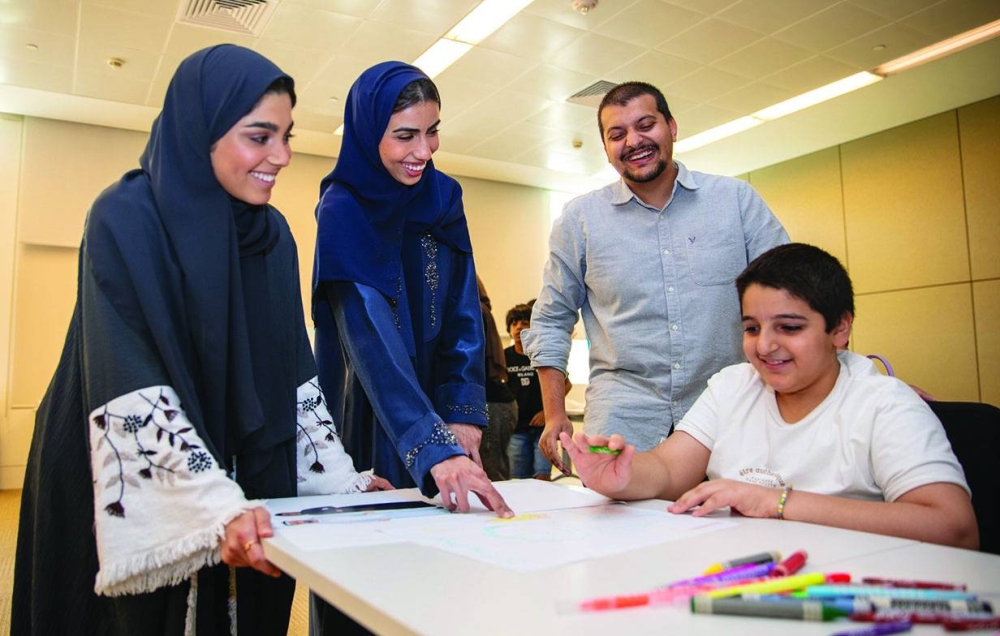
VCUarts Qatar graduates help to conduct the sessions.
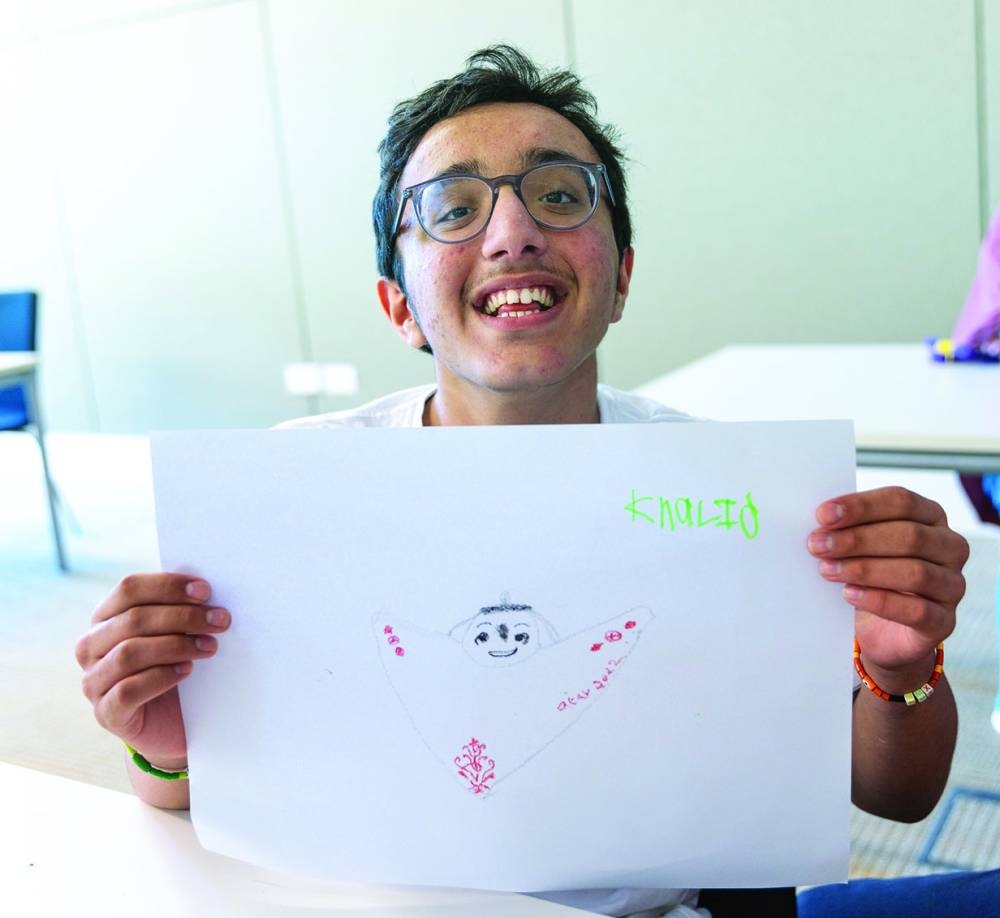
A participant from the programme.
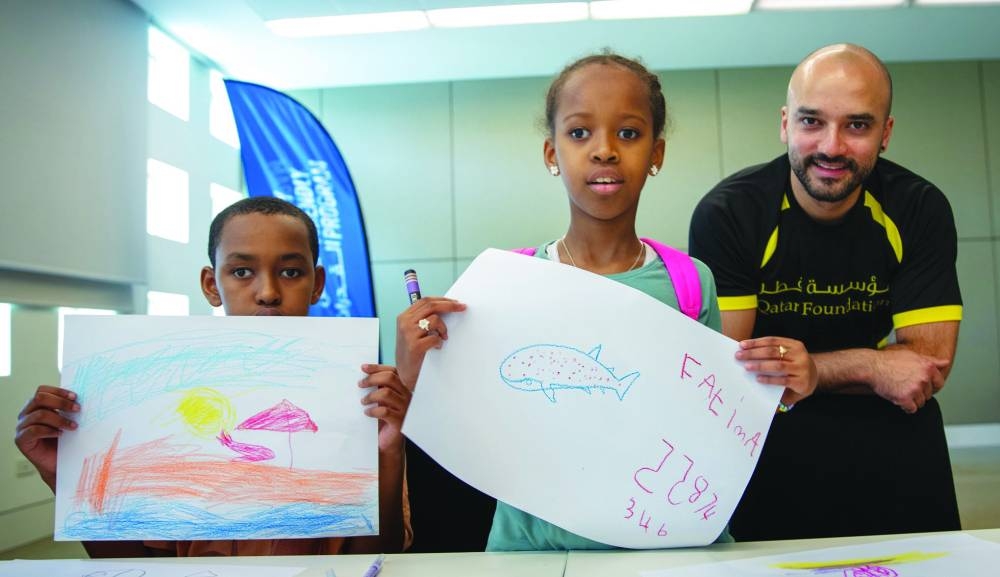
Some of the participants in the workshop.
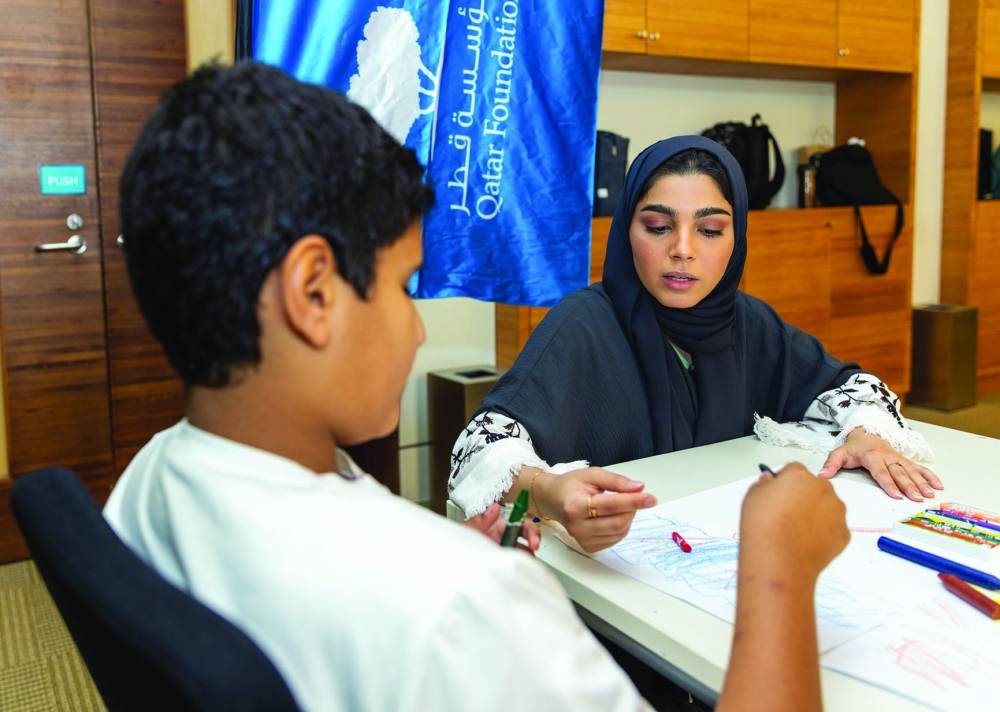
Another snapshot from the workshop.
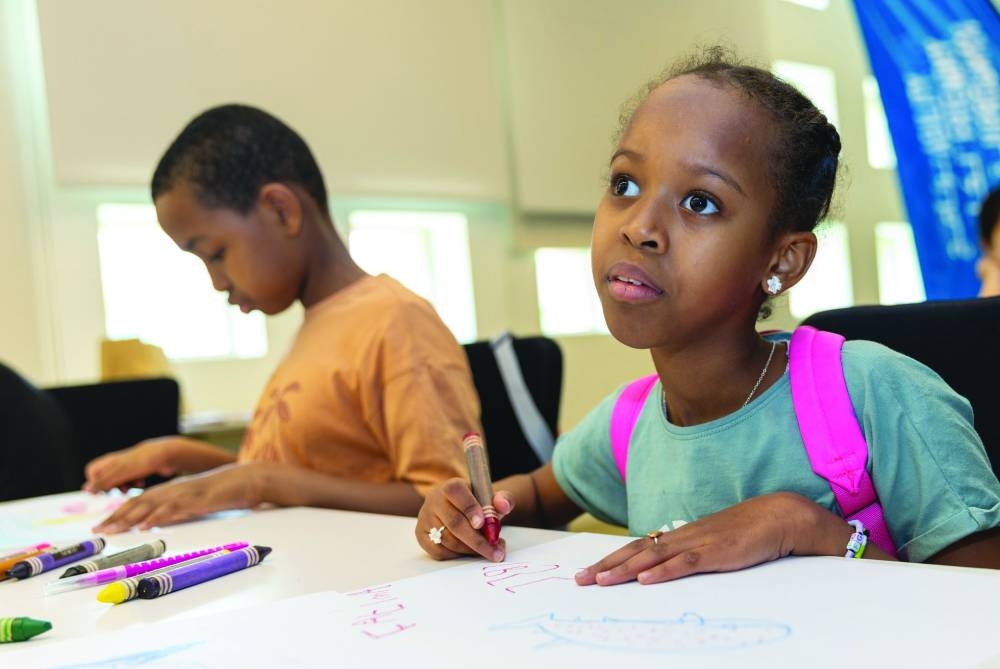
Students take part in the workshop.
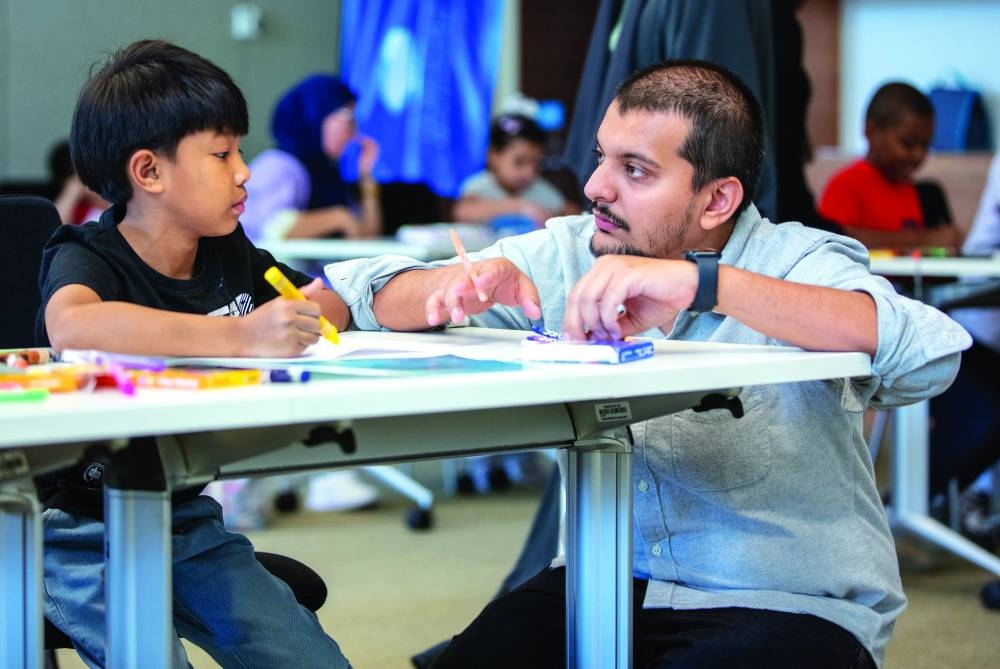
A workshop in session.

